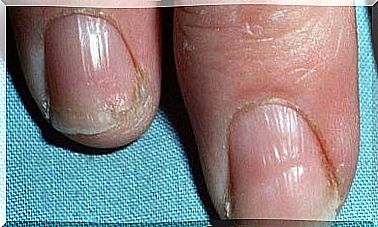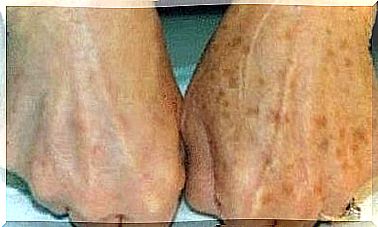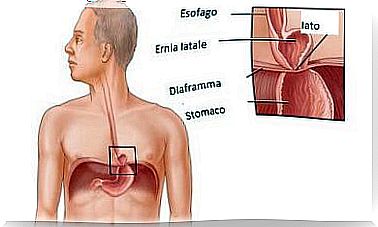Cystic Fibrosis: Nutrition To Follow

Following the right diet is essential for people suffering from cystic fibrosis in order to manage and improve the prognosis of this disease. Read on to know what to eat and why.
The Cystic fibrosis is an inherited chronic degenerative disease that primarily affects the lungs and digestive system. This pathology derives from a congenital mutation of the protein that intervenes in the secretion of mucus and in the regulation of chlorine and sodium transport.
In some cases, exocrine pancreatic insufficiency can also be diagnosed. This means that the pancreas is unable to secrete the enzymes responsible for the digestion of lipids.
The nutritional status of the patient is, therefore, decisive as regards the course of the disease and therefore the quality of life of the subject. Proper nutrition prevents worsening of lung function and decreases the risk of infections.
Why does cystic fibrosis cause undernutrition?
Undernutrition is one of the most important factors of disease, mortality and deterioration of the quality of life. Malnutrition in patients with cystic fibrosis is caused by the imbalance between energy intake and calorie consumption, determined by three main factors: the increase in energy demands, the lower ingestion of food and the increase in losses.
- Energy consumption and metabolism: the basal metabolic rate (MB) of people with this disease is higher. Pulmonary pathology, together with infections and increased respiratory effort, causes an increase in the body’s energy consumption.
- Decreased energy intake : Typically, cystic fibrosis patients may show complications, which limit the consumption of food by mouth, resulting in digestive upset and low calorie intake.
- Energy loss: this is due to the loss of important nutrients in the stool, due to poor digestion and poor absorption, which cause an energy imbalance.

Tips for feeding properly
Maintaining a correct nutritional status is one of the main objectives for ensuring adequate growth in children and guaranteeing them a better life.
Before making the necessary dietary changes, it is important to make a thorough assessment of dietary habits and anthropometric measures. The body mass index (BMI) in women should be around 22 kg / m2, while in men it should be around 23 kg / m2.
The diet in cases of cystic fibrosis must be as similar as possible to that of a healthy person. However, we need to pay attention to a number of specific aspects:
- Increased energy intake. In patients with cystic fibrosis it is necessary to provide 120-150% of the energy requirement necessary for age and weight. In case of weight loss, it is recommended to exceed 150%.
- Protein intake. You need to consume 120-150% of the recommended daily protein intake based on age and weight.
- Carbohydrates. Carbohydrates must represent 40-45% of the total caloric value. It is recommended to consume complex carbohydrates, avoiding simple sugars to maintain blood glucose control. If respiratory failure is present, carbohydrate intake should be reduced to 30%.
- Supply of lipids. The lipid (or fat) intake must reach 40-45% of the total. However, care must be taken not to exceed 10% saturated fatty acids.
- Minerals. An adequate supply of minerals such as calcium, zinc, iron and sodium must be ensured.
- Fat-soluble vitamins. A complementary supply of vitamins A, D and E is necessary and, depending on the values of the blood tests, vitamin K.

How to organize your diet if you have cystic fibrosis?
It is advisable to divide the food into 3 main meals, interspersed with 2 or 3 snacks. It is vital, in order to increase energy intake, to include healthy calorie foods, such as:
- Extra virgin olive oil.
- Dried fruit.
- Blue fish.
- Dairy products and internal milk derivatives: cream, butter, cheeses.
- Sugary foods, such as homemade desserts or ice cream.
Food supplements for patients with cystic fibrosis
In some cases the diet is not enough, and it is necessary to introduce food supplements, such as fortified milk, carbohydrate gel and / or proteins or artificial feeding (parenteral or enteral).
As already mentioned, in some cases there is also an insufficiency of the exocrine pancreas and an enzyme supplement is required. If the enzymes are not supplied exogenously, the fat is not digested and is excreted directly with the faeces.









